Split-Dalmatia County Tourism Workers' Vaccination On June 5
May 21, 2021 - The fight against COVID-19 continues before the start of the season, and it is time for Split-Dalmatia County tourism workers' vaccination.
As reported by hrturizam.hr, the Split-Dalmatia County Institute of Public Health invites all tourism workers who have been vaccinated with the first dose of vaccine on May 8 and 15 to come for vaccination on June 5, by the hour they were ordered for their first time.
It is important to note that a gap is required between two doses of vaccine three to six weeks so that all employees who received the first dose of vaccine in the above terms can come for the second dose of the vaccine.
All tourism staff who did not receive the first dose of vaccine can also come that day at the Spaladium Arena from 13:00 to 14:00.
“Vaccination of tourism workers is of great importance for achieving the health security of the destination. This is the most challenging tourist year so far and the responsibility for the achieved results is on each individual, so we invite all tourism workers to be part of the joint creation of the image of Split as a safe tourist destination," said Alijana Vukšić, director of the Split Tourist Board.
According to koronavirus.hr, 25.7% of the total population of Split-Dalmatia county has received the first dose of the COVID-19 vaccine, while 7.8% have received both doses as of May 20th.
Apart from the tourism workers, all citizens or residents of Croatia can be vaccinated against COVID-19. Vaccines are not intended for children under 16 or 18 years of age, and the vaccination age depends on the type of vaccine. However, due to the higher risk of developing more severe forms of COVID-19 disease, preference is given to people with chronic diseases and the elderly. These include people with respiratory, cardiovascular, malignant, kidney diseases, diabetes, and immunodeficiencies.
You can apply for vaccination by reporting to your family doctor, via the website cijepise.zdravlje.hr, by calling the toll-free number 0800 0011, and through county public health institutes.
For all you need to know about coronavirus specific to Croatia, including travel, border, and quarantine rules, as well as the locations of testing centers and vaccination points up and down the country, make sure to bookmark our dedicated COVID-19 section and select your preferred language.
HZJZ: One in Three Adults Vaccinated
ZAGREB, 20 May 2021 - As of today, every third adult in Croatia has been vaccinated against COVID-19, the Croatian Public Health Institute (HZJZ) said on Thursday.
On Wednesday, 19 May, 43,890 doses of the vaccine were used, and the number of persons that have received at least one dose reached 1,109,161, which is 27% of the population or 33% of the adult population, while 341,008 persons have received both doses.
According to data from the eCijepih platform, as of 20 May, every third adult in Croatia has been vaccinated, which is a big step forward compared to early May, when on 1 May every fifth adult citizen of Croatia had been vaccinated, the HZJZ said.
First dose vaccine coverage is highest in Zagreb, 31% of the total population or 37.6% of the adult population, and second dose vaccine coverage is highest in Sisak-Moslavina County, 12% of the population or 14.4% of adults.
"These are encouraging data that give us reason for optimism when it comes to meeting the goal of vaccinating over a half of Croatia's adult population by the end of June. Vaccination is going according to plan, the epidemiological situation is better than in previous weeks and this is certainly good news, especially in the context of the upcoming tourist season," said HZJZ deputy director Ivana Pavić Šimetin.
For all you need to know about coronavirus specific to Croatia, including travel, border and quarantine rules, as well as the locations of vaccination points and testing centres up and down the country, make sure to bookmark our dedicated COVID-19 section and choose your preferred language.
Croatia's Coronavirus Update: 349 New Cases, 36 Deaths, 2,087 Recoveries
ZAGREB, 3 May 2021 - Over the past 24 hours, Croatia has registered 349 new cases of the coronavirus infection and 36 deaths, the national COVID-19 crisis management team said on Monday.
The number of active cases in Croatia today stands at 11,378. There are 2,247 COVID patients in hospitals, 244 of whom are on ventilators.
Since the first confirmed case of the infection in Croatia on 25 February 2020, a total of 335,522 people have been registered as having contracted coronavirus, 7,218 of them have died, while 316,926 have recovered, including 2,087 in the last 24 hours.
There are currently 30,225 people in self-isolation.
To date, 1,827,068 people have been tested, including 4,193 over the past 24 hours.
As of 2 May, 908,839 doses of the vaccine have been administered in Croatia, and 708,137 people have been vaccinated, with 504,856 people receiving the first dose and 200,702 receiving both doses. For 2,579 people there is no data on how many doses they have received.
For all you need to know about coronavirus specific to Croatia, including travel, border, and quarantine rules to the locations of vaccination points and testing centres throughout the country, make sure to bookmark our dedicated COVID-19 section.
Croatia Will Get Russian Vaccine If It Asks for It, Says Ambassador
ZAGREB, 1 February, 2021 - Croatia will get the Russian COVID-19 vaccine if it asks for it, Russian Ambassador Andrey Nesterenko said in an interview with the Monday issue of the Večernji List daily.
EU countries, including Croatia, have been having difficulty obtaining pre-ordered vaccines and Russia is willing to provide 100 million doses in the second quarter, as confirmed to the daily by Ambassador Nesterenko.
Even though Croatia has still not officially asked Russia for the vaccine, Nesterenko says that the head of a research group at Zagreb's Ruđer Bošković Institute, Dragomira Meichen, is Croatia's representative on the international scientific council for the Sputnik V vaccine and that the platform for consultations with Croatian experts already exists.
Sputnik V has a number of advantages that greatly simplify the delivery of the vaccine worldwide - it is stored at temperatures ranging from 2 to 8 degrees Celsius, which makes it possible to keep it in an ordinary refrigerator, and the price per dose is less than US$ 10, which makes the vaccine affordable for many countries, the diplomat said.
The ambassador also said that the Russian vaccine could play an important role in the fight against the pandemic and be used in UN missions.
UN Secretary-General António Guterres has therefore expressed hope that the World Health Organisation would approve the vaccine as soon as possible, the diplomat said.
He noted that Russia had so far received orders for the purchase of 1.2 billion doses of the vaccine from more than 50 countries.
Nesterenko added that the vaccine was being actively used in Russia, with vaccination conducted not only in hospitals but also in shopping malls and other venues. He added that a centre for the vaccination of foreign nationals had been opened in Moscow and that some of the foreign ambassadors serving in Russia had been vaccinated with Sputnik V.
Croatia Receives Another 17,550 Doses of COVID Vaccine
ZAGREB, 4 January, 2021 - Health Minister Vili Beros said on Monday that an additional 17,550 doses of COVID-19 vaccines had been delivered earlier in the day, and that 12,285 people had been vaccinated since Croatia started administering the vaccines against this infectious disease.
Beros said that a lower number of tests performed in the last few days could be ascribed to the fact that this was the period of Christmas and New Year holidays.
The minister expects more tests to be conducted as of mid-January.
As of the current stringent anti-COVID measures that are in place until 10 January, the minister said that their prolongation would depend on the epidemiological situation.
Croatia has registered 361 new coronavirus cases and 54 infection-related deaths in the last 24 hours, the national coronavirus response team said on Monday.
The number of active cases stands at 5,899 and 2,453 people are receiving hospital treatment, including 196 on ventilators.
With the 54 latest fatalities, the death toll has climbed to 4,126.
Since February 25, when the first case of infection was confirmed in the country, 213,319 people have been infected with the novel virus. A total of 203,294 have recovered, of whom 852 in the last 24 hours. Currently 16,865 people are in self-isolation.
A total of 1,035,076 people have been tested for coronavirus, including 2,985 in the last 24 hours.
First Two Employees of Zagreb's Dubrava Hospital Vaccinated Against COVID-19
ZAGREB, Dec 27, 2020 - A physician and a nurse working in the intensive care unit of Zagreb's Dubrava hospital, converted into the central hospital treating COVID-19 patients in Croatia, got vaccinated against the disease on Sunday.
The vaccination was attended by Health Minister Vili Beros.
Thirty-five employees of the hospital will get immunised today and a total of 200 doctors and nurses working at the hospital will be vaccinated in the next two days.
Acting hospital director Ivica Luksic said that today was a big day, encouraging in many ways.
"The KB Dubrava hospital and all its employees have been on the front line of the battle against the pandemic from the very first day and for all of us this is a new beginning in the treatment of this disease," he said.
Minister: We will reward KB Dubrava for selfless work done
Minister Beros underlined the role of the KB Dubrava hospital, which has been the most important centre in the country for the treatment of COVID-19 patients since March.
"More than 450 people are treated and 69 receive respiratory support on a daily basis at Dubrava. I learned this morning that 360,000 litres of liquid oxygen is spent an hour in the treatment of our patients. We could not have created such conditions in any other Zagreb hospital," Beros said, adding that if possible, the government would compensate the hospital and all its employees for their selfless work.
"We will consider expansion to include new, research elements and new services. Once this epidemic is over, that will be a sign of gratefulness to all Dubrava hospital employees," said the minister.
Beros said the number of infections in the past two days was small but that fewer tests were performed, noting that it was encouraging that the number of new infections had been declining in the past two weeks.
He said that the number of new hospital admissions today was higher than on Saturday but that there were fewer patients on ventilators than yesterday.
"The number of fatalities is the result of developments in the last 2-3 weeks. That number is expected to start going down in a week and a half because the mortality rate will start following the trend in the number of new infections," said the minister.
Croatian Healthcare Workers: Christmas's Forgotten Heroes?
December 28, 2020 – Amidst the difficulties of a second lockdown, a socially distanced Christmas and yet more earthquakes, have we forgotten about Croatian healthcare workers? TCN decided to interview a doctor working on the front line of the fight against COVID
During the first lockdown, it was all about the balconies. Saxophonists, DJs, opera singers – we were entertained on social media by a string of balcony-based stunts that somehow showed resilience, community spirit, humour. Zagreb was no exception. A trend of clapping on balconies in appreciation of healthcare workers passed from country to country and was picked up in Zagreb. After the applause finished, people went back inside. Nothing much had changed. It was a nice enough gesture.
Since the start of summer, no such applause has been heard. Perhaps the release from lockdown gave the signal that the lives of Croatian healthcare workers had also become much easier? That certainly wasn't the case. Though the number of people infected with COVID has grown significantly over recent weeks, Croatian healthcare workers have been treating people sick with COVID since springtime.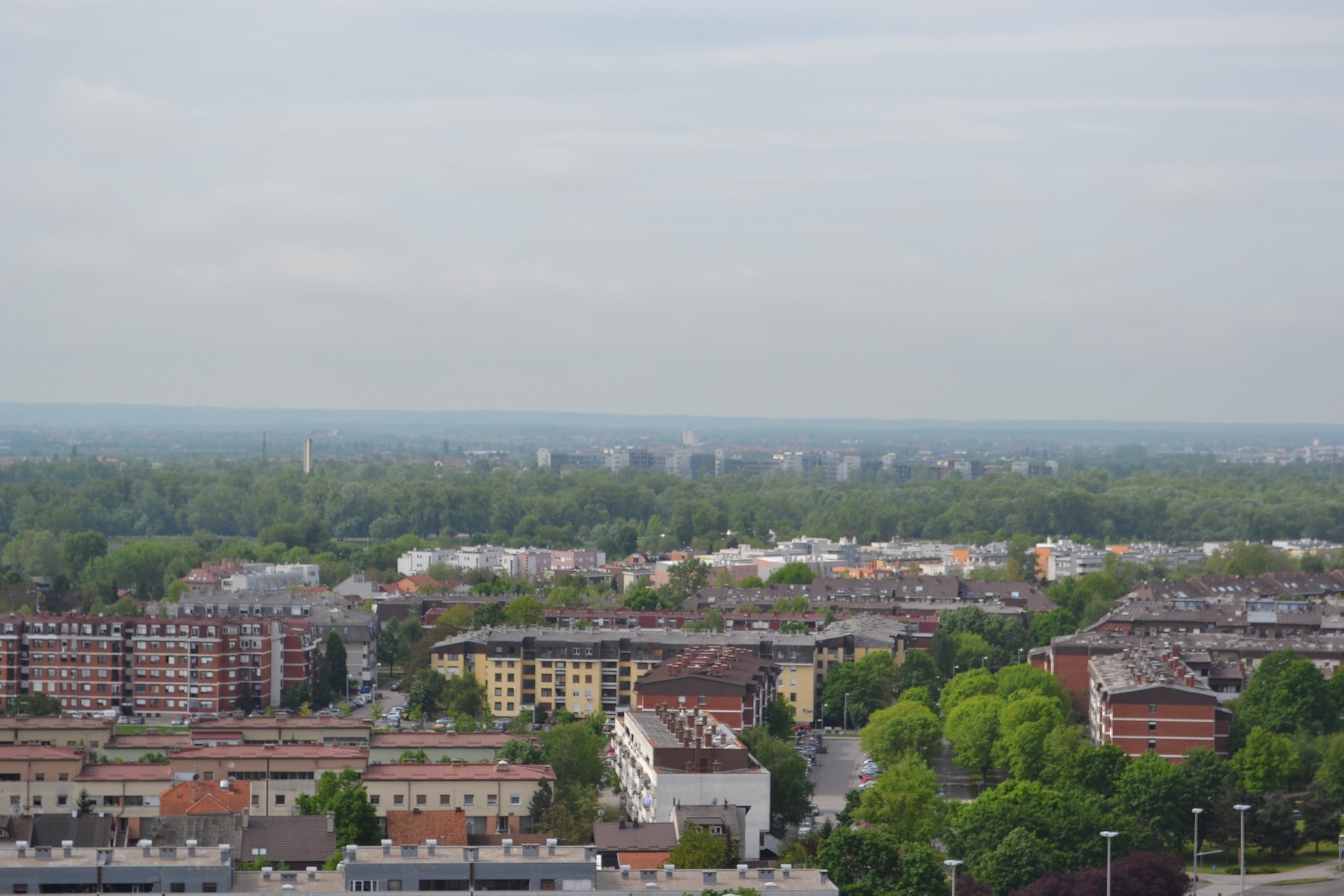
Croatian healthcare workers are currently busier with COVID patients than at any time before. And yet, there are no more trips out onto the balconies to show our appreciation for them. Perhaps it's now too cold outside? Perhaps some aren't aware how busy Croatian healthcare workers currently are with COVID patients? Are we perhaps guilty of taking Croatian healthcare workers for granted? Or, maybe we have simply put Croatian healthcare workers to the back of our minds as we struggle with our own challenges?
Throughout this year, TCN has been pleased to report many instances of generosity and innovation directed towards the fight against COVID. Certainly, not everyone in the country is guilty of forgetting about the Croatian healthcare workers who are on the front line fighting this disease. But, how much impact do these instances have on the general lives of Croatian healthcare workers? What is it like to no longer hear the nightly appreciation from our balconies? And, just what is life like as one of the many Croatian healthcare workers battling COVID in the year of the pandemic? TCN decided to interview one to find out.
The doctor we spoke with is a resident physician, working at a smaller community hospital in the continental part of Croatia. They agreed to speak with us on the condition that they do so anonymously.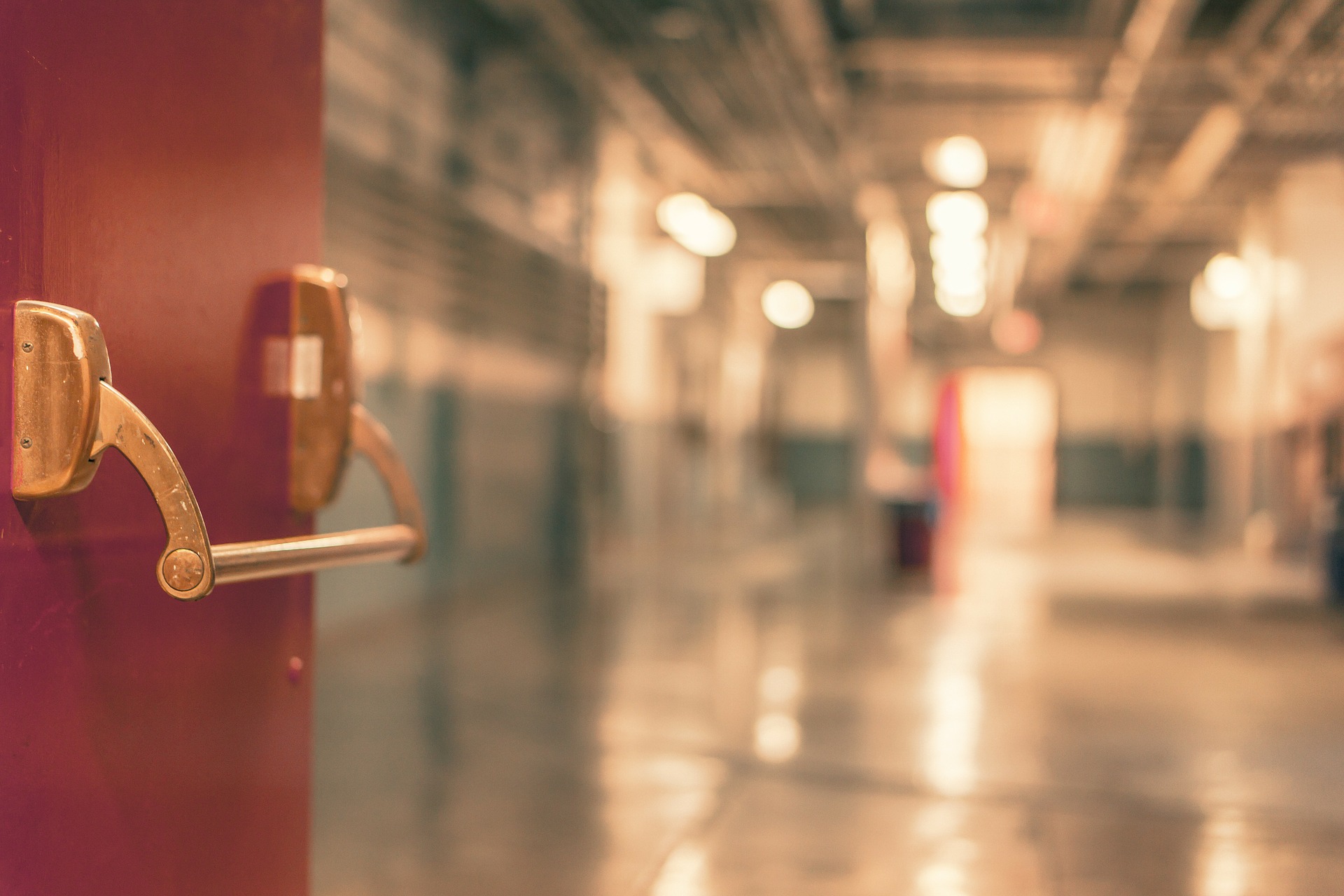
Looking back at the first lockdown, we didn't know so much about COVID back then. We didn't know exactly how it was spread, the different manifestations of the disease, what course the disease took, nor what the recovery could be like. I think the government did a really good job of responding to the threat as they saw it. We had a small spike in cases, but that is minuscule to what we have now.
I think people generally did what they were told because they thought it would be temporary and they could see the sense in starving the disease out.
At the hospital, we were at first caught a little off guard with the amount of PPE we had and some other resources that we needed. For ICU and ventilators, we were well equipped.
Some of the residents were given some paid leave. It was important to put human resources into tiers. Croatian healthcare workers were certainly more predisposed to catching the disease, simply because they were around it every day.
After such great early successes, I was surprised that everything was relaxed later on to allow the tourist season to take place how it did, and for events like the Vukovar commemoration. It felt like it was a calculated risk. The lockdown we are now in is perhaps too little, too late. The disease is out there now, wild. The numbers of infected people are significantly higher.
The difficulty with this disease is that people can be infected and have very few or no symptoms at all. They might not know they are spreading the virus. You might not know you're sitting next to someone who has it.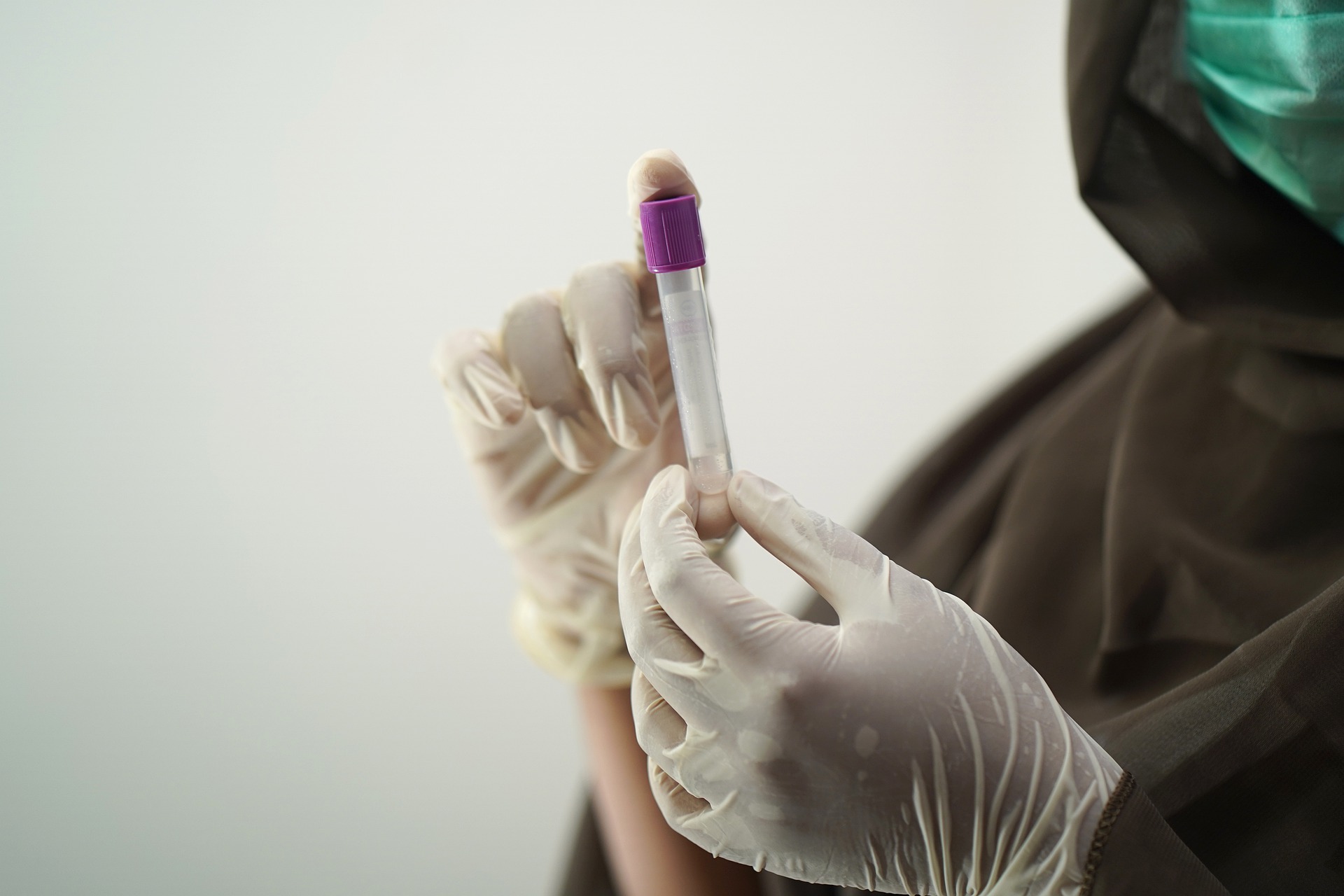
Even though we're not at the centre of care for a major population area or city, we saw cases of the disease almost immediately. Our community hospital services an area containing around 150, 000 people. The first cases in April came from nursing homes – elderly, vulnerable people, many with pre-existing conditions. We were well equipped to handle it. Now, we are stretched on a daily basis. We fill the beds with sick people as soon as we empty them.
We wear masks and PPE all day, all the time. All Croatian healthcare workers in hospitals currently do this. Every patient who comes in, regardless of their symptoms, we treat them as though they are carrying the disease.
A lot of residents like me, who are working towards getting their specialty, go to do some periods of work in larger hospitals in the bigger cities. Now, many of those residents have been called back to their community hospitals – we are short on human resources.
The hospital has had to restructure itself significantly. Lots of doctors have been asked to provide cover in the emergency department. Over half of that area is now fully dedicated to COVID.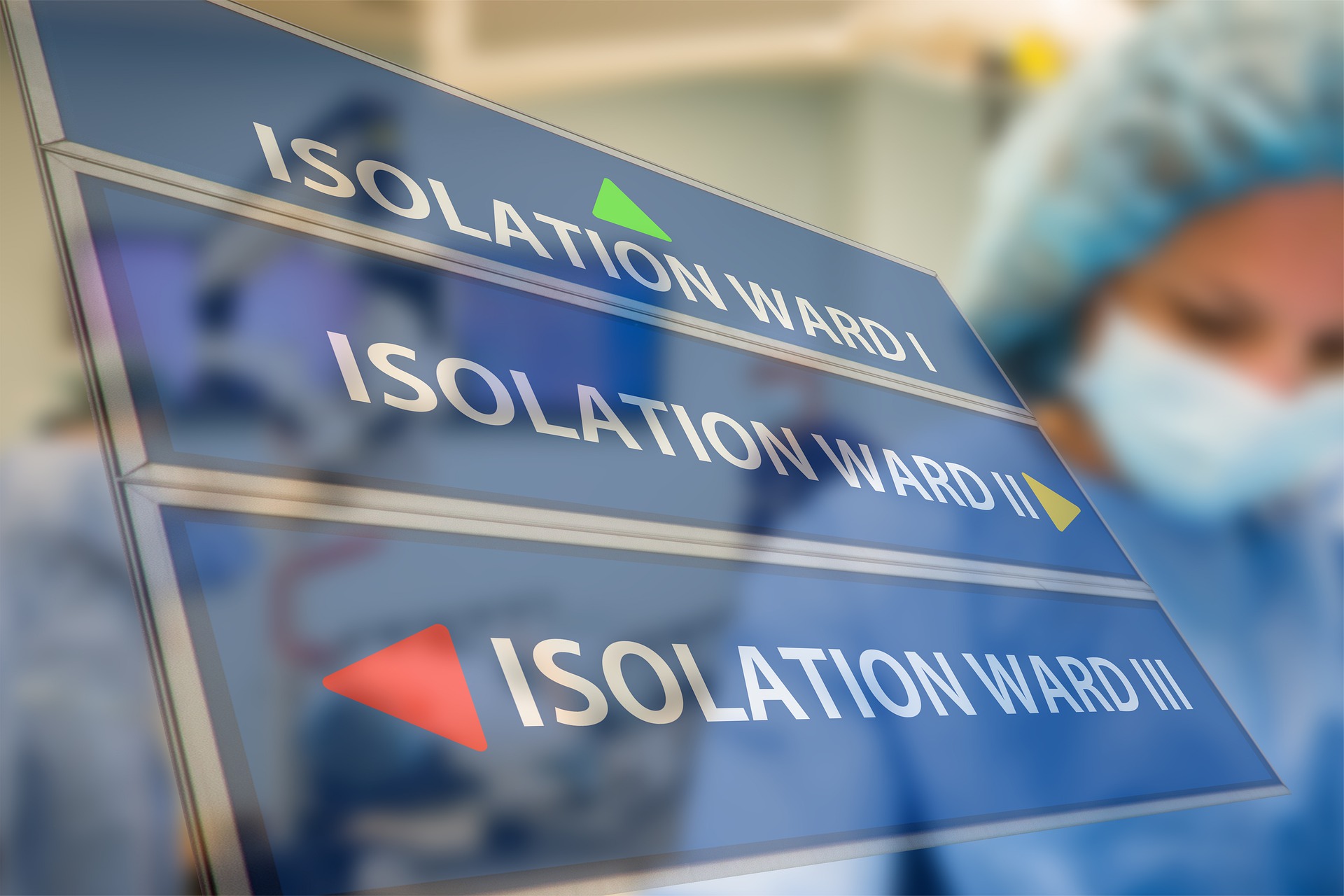
What do COVID patients look like in regards to their symptoms? It depends on their age and risk group, but you see people who look like they have flu or bacterial pneumonia, you see people who are in acute respiratory distress. Sometimes they have neurological changes, some of them look like they have had a stroke. Some people who have been infected and have supposedly got over the worst of the symptoms, come back in after a month or two with blood clotting problems – blood clots in the legs, which have a tendency to travel up to the lungs and cause a pulmonary embolism. That's a pretty big medical emergency. Some who have pre-existing heart conditions come in with a heart attack triggered by them catching COVID – it's more complicated trying to revive someone when you know they have COVID. The presentation of the disease is so variable.
It's not only older people. I've seen young people be admitted with serious reactions to COVID - young, healthy people who have no pre-existing conditions. I've seen young people come in with mild symptoms, they are sent home with antibiotics and steroids. That is the standard treatment – antibiotics to prevent a bacterial super-infection and steroids to prevent an acute reaction by the body's immune system to COVID. - that's what can cause big problems later on, in the course of the illness. But, sometimes that's not enough. I had a young patient just last week - super healthy, worked out regularly, no pre-existing conditions – and his lungs just looked awful. He had to go to the ICU immediately (sadly, this patient later died). That's like no disease I've ever seen before. Really, COVID is a completely new kind of animal.
The new strain of COVID? There is evidence that it can be spread more easily, and that it can affect more younger people, but there is no evidence that it is any more severe. The vaccines will work against it.
We're short on ventilators now. Really, we need two free ventilators at any time, in case there is an emergency admission. We are not currently in the position where we always have two free ventilators – sometimes they are all in use. That's a worry. I worked one shift where the anaesthesiologist said “We just don't have any more space for them – we will just have to put them in the hallway”. I've never seen that before.
I've heard of Croatian healthcare workers, colleagues in other hospitals getting sick with COVID and the hospital asks them to prove they got sick at work. It's pretty clear that's the most likely place they would have got sick because they're working with COVID patients. They were forced to be off work, but only on a lower level of sick pay. If you get ill because of being at work, you get full pay. But, they couldn't prove it, so they didn't get that.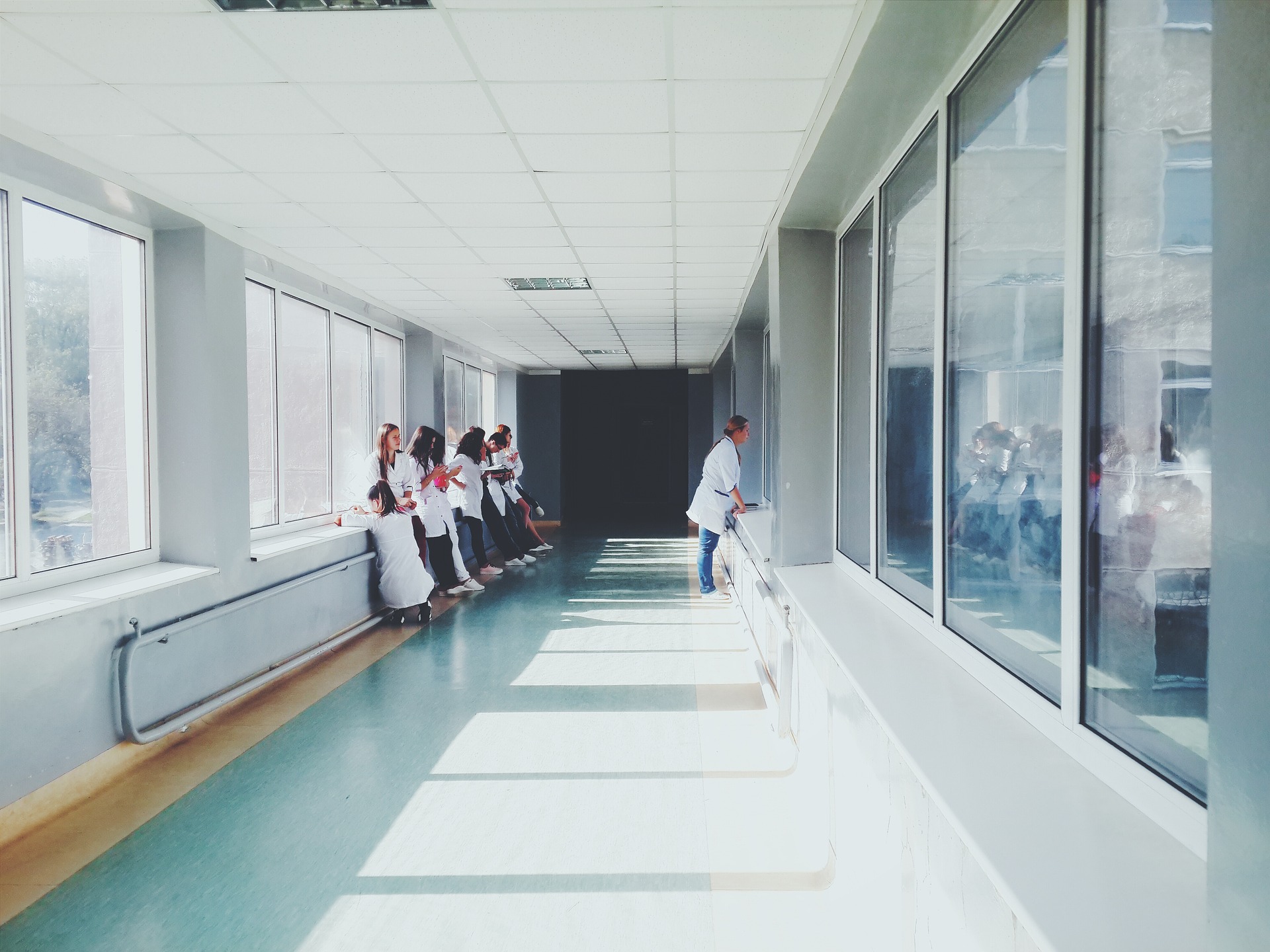
I've been lucky – I haven't caught COVID yet. Well, as far as I know. My pay hasn't gone down, it's gone up – but only because I'm working so many double shifts. I volunteer to provide cover when other members of staff get sick. The specialists – the consultant doctors – they have it worse than us resident doctors. They are more responsible, so they are expected to work more hours. Nobody is pressured or threatened into picking up extra shifts, it's just something that almost all of us just do.
I've read some nice stories about fundraising efforts and donations to Croatian healthcare workers and hospitals in different parts of the country. Everything is appreciated. But, I personally haven't seen any effect of that on our day to day lives at work. Not at our hospital. Maybe there were PPE donations or cash donations, but it hasn't impacted the daily lives of me and the Croatian healthcare workers who are my colleagues. I think I heard that a local garage was giving free cups of coffee if you show your medical ID. Every little is appreciated.
For me and the Croatian healthcare workers who are my colleagues, instead of any kind of personal discounts or donations to staff, we would much prefer if people just took this disease more seriously. Things look very different when you work in a hospital compared to someone outside who maybe doesn't know anyone who got sick.
I came off a particularly difficult double shift a couple of months ago – it was just non-stop COVID admissions, some severe cases. As I was walking home, I walked past a bar that's near to the hospital. They had signs on the walls telling people to keep their distance. But, the bar was absolutely packed – full of young people. It just felt so disappointing. I couldn't help but think of the older relatives they would come in contact with, some who might get really sick.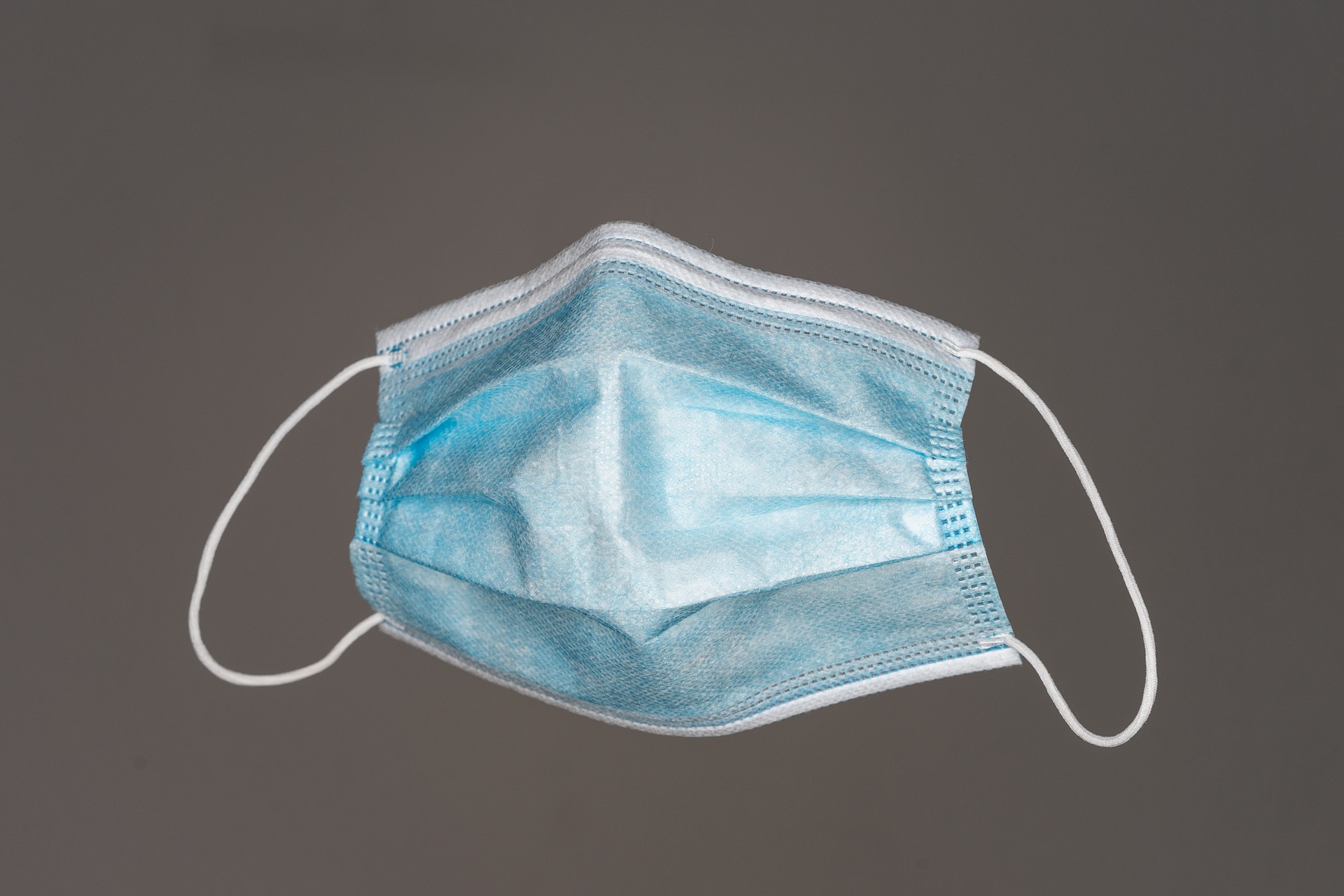
Instead of people clapping on balconies, I think Croatian healthcare workers would just prefer more general vigilance and personal responsibility – wear your mask, wash your hands regularly, no more parties in the basement. Clapping on balconies is a nice gesture, but ultimately it's an empty one.
How does it feel to know that there are some people out there, in every country, all around the world, who believe COVID is a hoax, or a plot, or not so serious, or that the vaccine is dangerous or something other than what it is?
Well, it's not always the content of the conspiracy theory that appeals to these people as much as it is their inability to accept facts – the truth – because they have little faith in the authorities that are telling them this. Here in Croatia, I think that distrust is quite high – a lot of people are disillusioned with the state and politics, because of corruption. Sometimes over 50% of the population choose not to vote. The dissemination of misinformation over social media doesn't help - if that's where people get their news from. If you look at that example from your own country, where strict measures about movement were put in place by your government, and immediately afterward, the Chief Advisor to the Prime Minister, was caught breaking them to travel across the country with his family to a second home in the countryside, going out on day trips. And he was defended by his colleagues after he was found out! When people see those kinds of things happening, the distrust between people and the authorities just grows.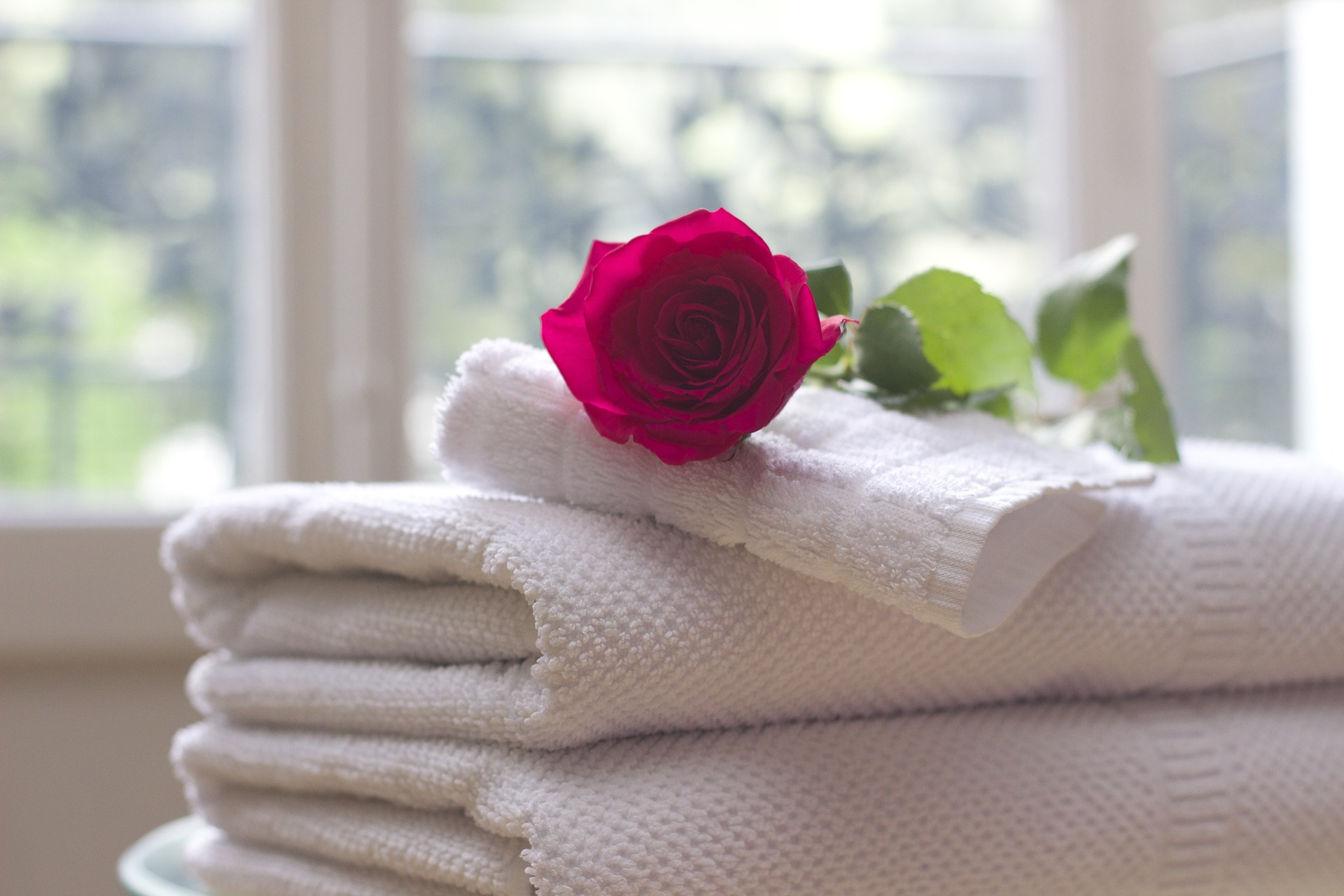
All of the images in this article are used as illustrations only. None of the places or people depicted are in Croatia or Croatian, except for the first image, a panorama of Zagreb
COVID-19 Vaccine is Safe, Says Member of Gov't Scientific Advisory Council
ZAGREB, Dec 27, 2020 - A member of the government's Scientific Advisory Council, Andreja Ambriovic Ristov, has said that the arrival of the COVID-19 vaccine in Croatia is the beginning of "the end of the abnormal situation we have been living in for ten months."
The first 9,750 doses of the Pfizer-BioNTech COVID-19 vaccine arrived in Croatia early on Saturday morning and the vaccination was set to start on Sunday.
Ambriovic Ristov, who heads the Department for Molecular Biology of Zagreb's Rudjer Boskovic Institute, said in an interview with Croatian Television on Saturday that the situation regarding the COVID-19 pandemic would not get back to normal so soon and that the dynamic of the vaccination would determine how soon herd immunity would be achieved.
It is assumed that immunity requires vaccinating 70% of the population, but there is a possibility that more people will have to get vaccinated, she added.
She noted that people should not relax too soon and that they should comply with the epidemiological restrictions in force.
"The current restrictions cannot be relaxed. They are good, the government made the right decision because two weeks ago, when they were introduced, the number of new infections started to decline. Unfortunately, the decline in hospital admissions is small but the number of fatalities is unfortunately still not going down," she said.
Ambriovic Ristov noted that one would have to live with restrictions until a majority of the population was immunised and until it became evident that the virus was circulating less in the population.
She said that it was not likely that people would be able to stop wearing face masks by autumn, but that the end was in sight.
She said that the vaccine was safe and that vaccination would not change anything in the human genome.
"We will stay as we are, the vaccine is completely safe," she said, stressing that only those with a history of more serious allergic reactions should be on guard.
Researcher: Vaccine won't yield effects before March
Researcher and molecular biologist Ivan Djikic said on Saturday that the vaccine that arrived in Croatia earlier in the day would not yield effects before March and stressed that compliance with epidemiological restrictions in January and February was essential for protection.
Expressing confidence that more than 70% of the population would get vaccinated based on positive results, he said that one should continue to be cautious because the vaccine alone would not defeat the disease.
It will take four to five weeks for the vaccine to yield a positive effect. "January and February are the months when we will have to work together to protect ourselves," he said.
The situation in Croatia regarding the epidemic is unstable, data on new infections are not reliable, the rate of testing is insufficient, he said.
"Croatia is No. 1 in terms of the growth of mortality, No. 2 in terms of the number of deaths and No. 4 in terms of pressure on hospitals. The vaccine will not yield effects before March, only our joint work will," he said, predicting that the situation will become more normal in the second half of 2021 but that life will completely get back to normal only in 2022.
PM Sure That Vast Majority of Croatians Will Be Vaccinated
ZAGREB, Dec 27, 2020 - Prime Minister Andrej Plenkovic said on Sunday that he was sure that a vast majority of Croatians would be inoculated against coronavirus in the next months, reiterating that first 9,750 doses of COVID-19 vaccine would be administered to citizens at the highest risk and front-line professionals.
"I and my Cabinet are very happy that the vaccine rollout has started in Croatia. We have made the vaccination plan which the government adopted. The plan was prepared by the Croatian Institute of Public Health, to roll out vaccines throughout all the counties," the premier said after the first person in Croatia, an 81-year-old Branka Anicic, a resident of a retirement home in Zagreb, was given a Pfizer jab on Sunday morning.
Plenkovic underscored that the first 9,750 doses would be given to citizens at the highest risk of contracting the disease and to frontline workers.
The Croatian PM expects the European Medicines Agency (EMA) to certify the COVID-19 vaccines produced by Moderna on 6 January.
Asked by the press why Croatia's state leaders were not among the first to receive the vaccine, Plenkovic explained that the first doses should be distributed to residents in old-age care homes who are high-risk groups of citizens and to front-line physicians who care for them.
There will be enough time for the demonstration of giving vaccines to (officials) that should encourage as many people as possible to get vaccinated, said Plenkovic, who recently recovered from COVID-19.
He expressed his belief in the common sense of most citizens who will get vaccinated.
COVID-19 Vaccinations in Croatia to Start on Sunday, December 27, Announces PM
December 23, 2020 - The Croatian Government has announced that COVID-19 vaccinations in Croatia will begin on Sunday.
As Index.hr reports, Prime Minister Andrej Plenković said today at the press conference in the National and University Library that the vaccination will begin on Sunday, December 27, 2020.
"Safety is based on controlled clinical trials. Vaccinations will start on December 27, and it will take place over the next few months. We want as many of our fellow citizens to be vaccinated, and preferably everyone. That is why we have a clear debate that as many people as possible decide to get vaccinated. We aim for 70 percent of our fellow citizens to be vaccinated," Plenković said, reports Večernji list.
People in nursing homes will first get vaccinated
The vaccination will be free and voluntary. The first to be vaccinated will be those at risk because of their age or illness and their type of work.
"The priority groups are health professionals who are in contact with COVID-19 patients and users of social care homes. In the second phase, the elderly and those with chronic diseases will be vaccinated. The vaccine is coming on Saturday, it will be distributed to counties on Sunday, and mostly those in nursing homes will be vaccinated," said Krunoslav Capak, director of the Croatian Institute of Public Health.
Only the documentation content has changed, so now pregnant women and those who are planning to become pregnant can be vaccinated. There is no evidence that the vaccine acts on the fetus and pregnancy.
"We entered the negotiations on vaccine procurement with a timely response from the Government. We are a small market for large companies, and we often have problems with regular supply. We have secured maximum quantities of vaccines. When everyone gets the vaccine, we will get it too. That will happen on Saturday," Capak said.
Campaign 'Think of others, get vaccinated'
The Croatian Government has so far ordered 5,905,000 doses of the vaccine, of which one million from Pfizer, over two million from AstraZeneca, one million from Moderna, 900,000 from Johnson&Johnson, and 300,000 from CureVac.
Prime Minister Plenković said the vaccination plan's success depends on how many people will want to be vaccinated. He called on all media outlets to join the campaign under the slogan, "Think of others, get vaccinated."
"The Croatian Institute of Public Health has launched a campaign to promote vaccination. This is a key message. The arrival of the vaccine is an encouraging message, a message that gives hope for the normalization of life, social, and economic activities," Plenković explained. "This is an unprecedented crisis that has changed the world," he added.
Plenković said there is a loud but small group of people who oppose vaccination, but that there are many more people who want to be vaccinated than the vaccines that will come in the first tranche. Capak added that there would be enough vaccines for everyone.
"The arrival of the vaccine is a hope for the future. This is the moment when we come to the situation that by the end of March, we have about 270,000 doses of vaccine," Plenković said.
To read more about coronavirus in Croatia, follow TCN's dedicated page.


